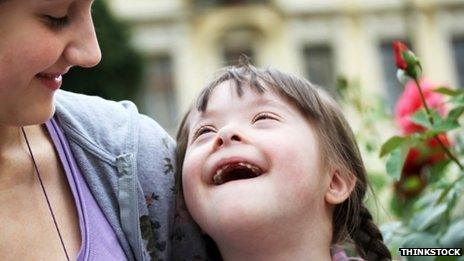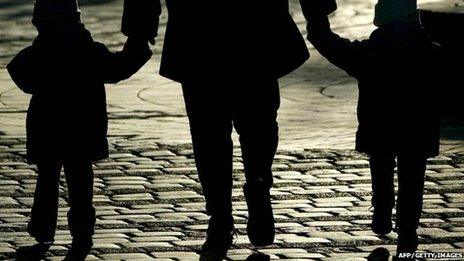Special needs changes being made 'too fast' - charities
- Published

The new system will support children and young people until the age of 25
Changes to special needs education (SEN) in England are being implemented too quickly, say charities.
From September special needs statements will be replaced by "education, health and care statements" which aim to give more holistic support.
Mark Lever of the National Autistic Society said details of "the biggest reform of the SEN system in 30 years" had not yet been finalised.
The government said the system would allow change to "take place gradually".
Mr Lever said he was particularly concerned that important details - such as how families would challenge decisions about support for their children - remained under review.
He told BBC Radio 5 live Breakfast that the changes could be undermined by the government's failure to provide a joined-up system of appeal.
"Too many families of children with autism will continue to battle for support on multiple fronts," he said.
Finer details
The learning disability charity Mencap also voiced concerns about the time frame.
"The finer details of the changes are yet to be published which means that professionals who work with children and young people with SEN have just a few months' notice of their new obligations before they are expected to meet them," said Dan Scorer, Mencap's head of policy and public affairs.
"This is a matter of urgency as the reforms are due to be implemented from September this year.
"Families of people with a learning disability have waited many years for the serious failings in the current SEN system to be addressed and, unless local authorities, schools and colleges are fully prepared, the impact of these important changes could be seriously undermined," said Mr Scorer.
Particular areas of concern, he said, include a lack of clarification as to whether children and young people's eligibility for SEN statements and the new education health and care plans will be the same.
"This should mean that no-one will lose support unless their needs actually change," he said.
The changes are set out in the Children and Families Act, which became law last month. A new special needs code of practice will set out much of the detail but the definitive version is not due to be published until the summer.
The government says the intention is to give children and young people with special educational needs and their parents "greater control and choice over the services they receive so their needs are properly met".
Single system
The new system will incorporate health and care needs alongside educational ones, with an individual worker and single budget for each family.
A single system will offer educational support up to the age of 25.
The two charities broadly welcome the new system as having the potential to improve support so that children and young people can achieve their full potential - but warn that the real test for the reforms will be how well they are implemented at local level.
"Success will depend on local authorities, health bodies and their partners changing their practices to put families at the heart of the system", said Mr Scorer.
A spokesman for the Department for Education said: "We have put in place significant support for local areas to prepare for the Special Educational Needs and Disability reforms. This includes a £70m grant for local authorities, and £30m to recruit and train 1,800 champions to support parents as the new reforms are implemented.
"We have also increased funding for Parent Carer Forums from £10,000 to £15,000.
"We know the majority of local authorities are confident they will be ready to make the new system available to new entrants from 1 September and the changes will take place gradually, allowing the new arrangements to develop locally."
- Published29 April 2014

- Published5 March 2014
